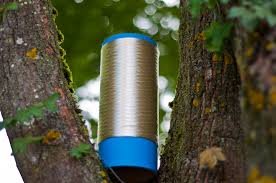The ‘Dutch Agreement on Sustainable Garments and Textile’ (CKT) was signed in 2016. The purpose of this agreement was to promote the use of sustainable raw materials in the production of textiles. Many businesses in the Netherlands have outsourced their production to other countries. These are countries where human rights, worker health and safety, environmental protection, and animal rights may be at risk. To protect their rights, Dutch companies are obliged to avoid these risks under international guidelines and agreements, for example, businesses must investigate the extent to which they could be implicated in human rights, environmental, or animal welfare violations.
 Raw materials that are less harmful to the environment and animal welfare, in particular, are distinguished from conventional raw materials. These more sustainable raw materials meet the criteria of internationally recognized organizations such as the Global Organic Textile Standard (GOTS), Better Cotton Initiative (BCI), and Textile Exchange.
Raw materials that are less harmful to the environment and animal welfare, in particular, are distinguished from conventional raw materials. These more sustainable raw materials meet the criteria of internationally recognized organizations such as the Global Organic Textile Standard (GOTS), Better Cotton Initiative (BCI), and Textile Exchange.
Pierre Hupperts, independent chairman of the agreement, said, “The trend is clearly positive. At the same time, we notice that several companies are still below average. We encourage these companies to make more use of more sustainable raw materials. We show them what the risks are, provide training, and assess their progress on this topic specifically. The agreement will continue driving the change towards a more sustainable supply chain.”
In 2017, 16 percent of the raw materials were more sustainable, in 2018 this was 28 percent and in 2019 it rose to 38 percent. Signatories are obliged to share their raw material usage. In 2019, the signatories of the agreement used about 50,000 metric tonnes, of which 55 percent was more sustainable. That was an increase of 13 percentage points compared to 2018.
Also, the use of more sustainable animal-derived materials is showing a significant increase, specifically responsible down. That was 21 percent in 2019, an increase of 17 percentage points compared to 2018. The use of certified polyester and polyamide is also increasing. In 2019, the AGT companies mainly used cotton (65 percent) and polyester (19 percent) in their garments. Cotton is the most used raw material by AGT companies.Thus, the agreement is becoming fruitful for the environment.



